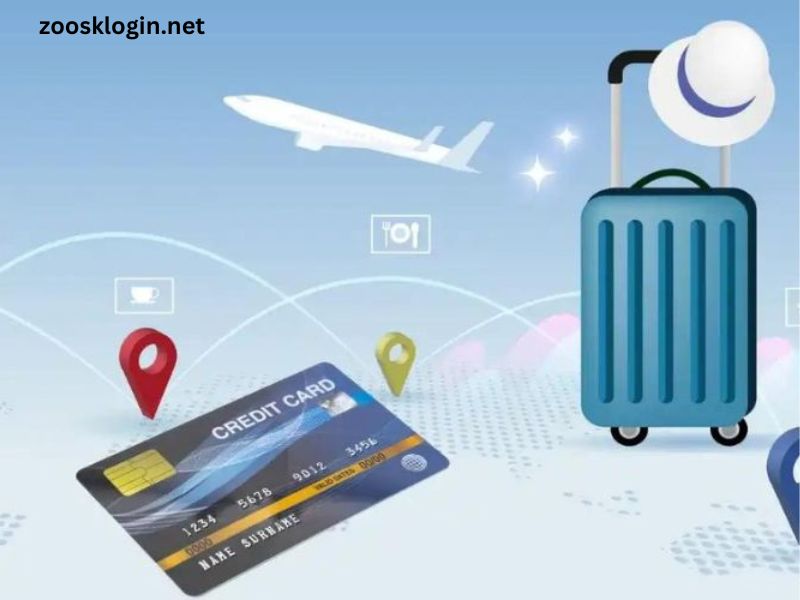Traveling can be one of life’s most enriching experiences, but it often comes with a plethora of expenses that can quickly add up. From booking flights and accommodations to dining out and exploring new destinations, the costs can be overwhelming. This is where travel cards come into play. These financial tools are designed to streamline your travel-related expenses and provide a variety of benefits that can enhance your overall experience. In this article, we will explore the benefits of using a travel card, focusing on key features that make it an indispensable asset for modern travelers.
1. Reward Points and Travel Miles
One of the most appealing Benefit of Using the Travel Card is the ability to earn reward points or travel miles. Many travel cards offer points for every dollar spent, which can be redeemed for flights, hotel stays, or other travel-related expenses. For instance, a typical travel card might offer 2 points for every dollar spent on travel and dining and 1 point for all other purchases. This means that the more you spend on your travel-related expenses, the more rewards you accumulate.
Example:
Imagine you spend $2,000 on travel in a year using a travel card that offers 2 points per dollar. You’d earn 4,000 points, which could translate into significant discounts or even free travel in the future.
2. No Foreign Transaction Fees
Traveling internationally often comes with the added burden of foreign transaction fees, which can range from 1% to 3% of each purchase made abroad. However, many travel cards waive these fees, allowing you to spend freely without worrying about extra charges. This is especially beneficial for those who frequently travel to different countries, as it can lead to substantial savings over time.
Example:
If you spend $1,000 abroad and your travel card has no foreign transaction fees, you save $30 (assuming a 3% fee) compared to using a card that charges such fees.
3. Travel Insurance Benefits
Many travel cards come with built-in travel insurance benefits that can cover various aspects of your trip. These can include trip cancellation insurance, lost luggage reimbursement, and even medical emergency coverage. Having these protections can offer peace of mind, allowing you to focus on enjoying your trip instead of worrying about potential mishaps.
Example:
If your flight is canceled due to unforeseen circumstances, a travel card with trip cancellation insurance may reimburse you for non-refundable expenses like hotel bookings or excursions, potentially saving you hundreds of dollars.
4. Airport Lounge Access
For frequent travelers, the hustle and bustle of airport terminals can be exhausting. Many premium travel cards offer complimentary access to airport lounges, providing a tranquil space to relax before your flight. These lounges often feature comfortable seating, complimentary snacks and beverages, Wi-Fi, and even showers. Access to lounges can significantly enhance your travel experience, allowing you to recharge before your journey.
Example:
Imagine having a layover at a busy airport. Instead of sitting in crowded waiting areas, you can relax in a lounge, enjoy a complimentary meal, and utilize free Wi-Fi to catch up on work or plan your itinerary.
5. Enhanced Customer Service
Travel cards often come with enhanced customer service options, including dedicated travel assistance lines. If you encounter any issues during your trip—be it lost luggage, missed flights, or even emergency medical situations—having access to a specialized customer service team can be invaluable. They can help you navigate complex situations and provide timely assistance.
Example:
If you miss a connecting flight, a travel card’s customer service may be able to rebook you on the next available flight without the usual fees, saving you time and stress.
6. No Annual Fee Options
While many travel cards come with an annual fee, there are also no annual fee options available that still provide substantial benefits. These cards often offer a reduced number of perks compared to premium cards but still allow you to earn rewards and avoid foreign transaction fees. This makes travel cards accessible to a broader audience, including those who may not travel frequently enough to justify a high annual fee.
Example:
If you travel just once or twice a year, a no-annual-fee travel card can still help you earn rewards without the burden of extra costs.
7. Emergency Assistance Services
Traveling to new destinations can sometimes lead to unexpected challenges, whether it’s a medical emergency or a lost passport. Many travel cards offer emergency assistance services that can provide support in such situations. This can include locating nearby medical facilities, helping you find a local lawyer, or even assisting with travel arrangements if your plans are disrupted.
Example:
If you lose your passport while traveling, a travel card with emergency assistance services can guide you through the process of obtaining a replacement, ensuring you can continue your journey with minimal disruption.
8. Flexible Redemption Options
Another significant benefit of using a travel card is the flexibility of redemption options. Unlike some loyalty programs that restrict how and when you can use your points, many travel cards allow you to redeem your rewards in various ways. You can often use points to book flights, hotels, or even for cash back on travel expenses.
Example:
If you have accumulated 50,000 points, you could use them for a round-trip flight, book a hotel stay, or apply the equivalent value toward your travel expenses, providing you with choices based on your needs.
9. Discounts and Offers
Many travel cards partner with airlines, hotels, and other travel-related services to provide exclusive discounts and offers to cardholders. These partnerships can lead to significant savings on flights, accommodations, and car rentals, making travel more affordable.
Example:
A travel card might offer a 10% discount on hotel bookings made through a specific website. If your hotel stay costs $1,000, you’d save $100 just by using your travel card.
10. Building Credit History
Using a travel card responsibly can also contribute to building your credit history. Making timely payments and maintaining a low credit utilization ratio can positively impact your credit score. A higher credit score can lead to better interest rates on loans and mortgages, providing long-term financial benefits beyond your travel experiences.
Example:
If you consistently use your travel card for everyday purchases and pay off the balance each month, you could see an increase in your credit score, which can help you secure loans or other credit products in the future.
Conclusion
In summary, using a travel card offers a multitude of benefits that can significantly enhance your travel experience. From earning rewards points and avoiding foreign transaction fees to enjoying travel insurance and emergency assistance, these cards are tailored to meet the needs of modern travelers. Whether you’re a frequent flyer or an occasional vacationer, incorporating a travel card into your financial strategy can provide peace of mind and financial advantages that elevate your travel adventures.
Before choosing a travel card, it’s essential to assess your travel habits and preferences to find the card that best fits your needs. By doing so, you can maximize the benefits and make the most of your travels, turning each journey into a rewarding experience.






